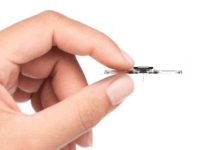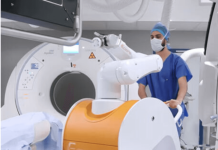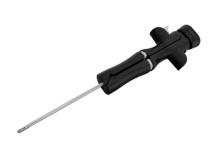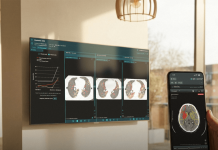Moxi performs delivery tasks in hospitals, like bringing supplies, delivering lab samples and distributing personal protective equipment.
Diligent Robotics raised more than $30 million in a Series B funding round for its clinical support robot, Moxi.
The round was led by Tiger Global with participation from True Ventures, DNX Venture, Ubiquity Ventures, E14 Fund, Next Coast Ventures, Boom Capital, Gaingels and Cedars-Sinai Health Ventures. The startup joined the Cedars-Sinai Accelerator class announced in February 2021.
This investment builds on a $10 million Series A round from March 2020, bringing its total raise to nearly $50 million.
WHAT IT DOES
Diligent’s flagship product, the Moxi robot, performs delivery tasks that are not patient-facing for hospital workers, like bringing supplies from central storage, delivering lab samples, distributing personal protective equipment, delivering medications, bringing patients’ personal items and moving light-weight equipment between units.
Moxi features a “face” with LED eye expressions, storage containers and a robotic arm that helps it navigate doors and elevators.
WHAT IT’S FOR
The startup plans to use the capital to improve their supply chain and design teams so they can deploy Moxi robots more quickly. Diligent is also focusing on adding integrations with existing hospital tech infrastructure, like EHRs and clinical communication tools.
“We are proud to have the full support of our past investors and welcome our new partners who joined during our Series B raise,” Diligent CEO and cofounder Andrea Thomaz said in a statement.
“This new round of funding will help us scale the company to meet the incredible demand for our healthcare service robot. Thanks to the support of our investors and the Diligent team, we are focused on expanding automated support for clinical teams so nurses and clinicians can focus on tasks that matter most, patient care.”
RELATED: Stroke care coordination company Viz.ai lands $100M
MARKET SNAPSHOT
Another company utilizing robots in the healthcare space is Movia, which late last year launched its TheraPal Home and TheraPal Clinical Assist Aides to help children with autism and other developmental and intellectual disabilities practice social skills, reading and math.
In South Korea, the Korea Institute of Machinery and Materials built a sterilization robot that aims to prevent infectious diseases by estimating where a virus would be most likely to spread in enclosed areas.




